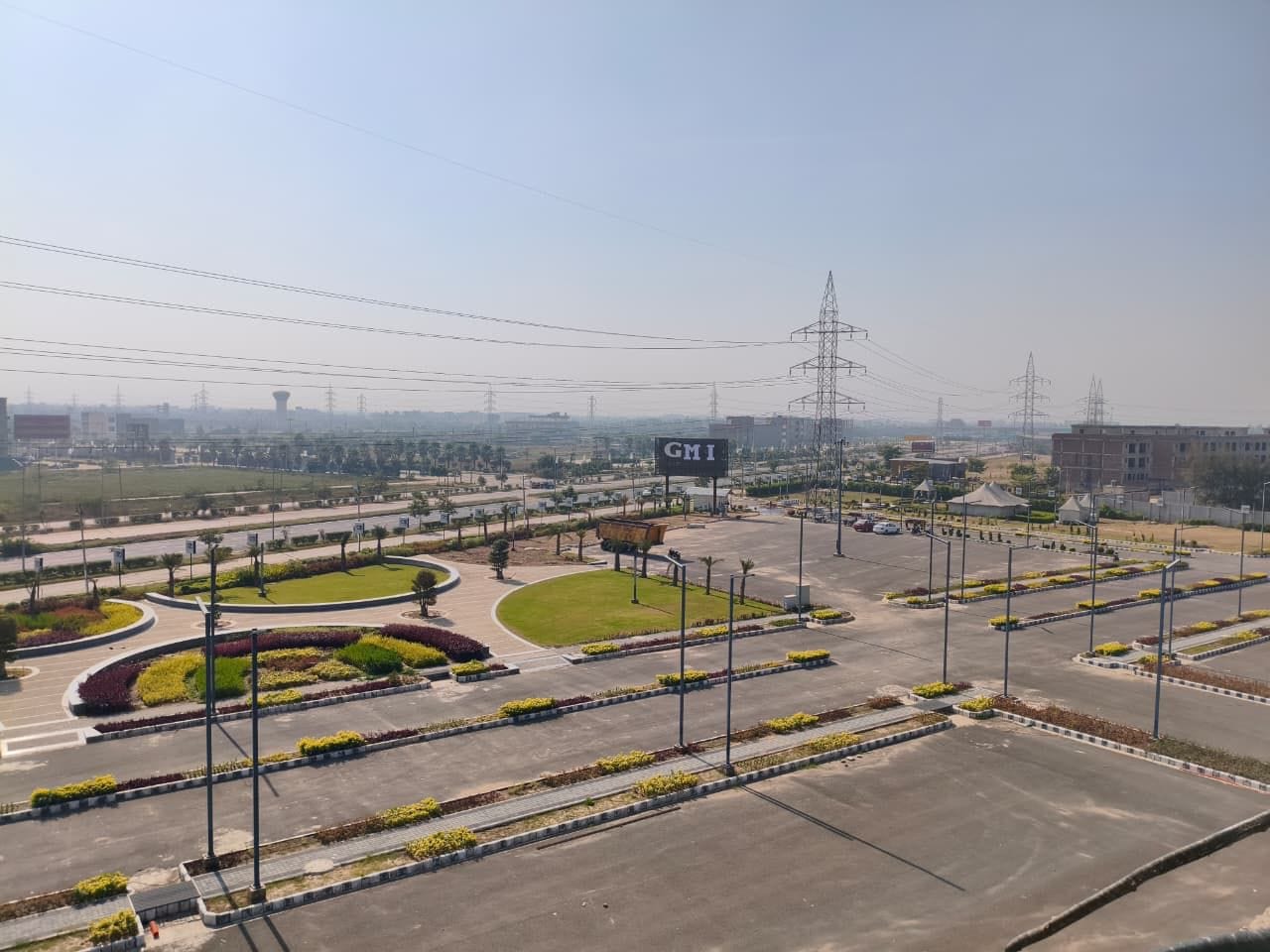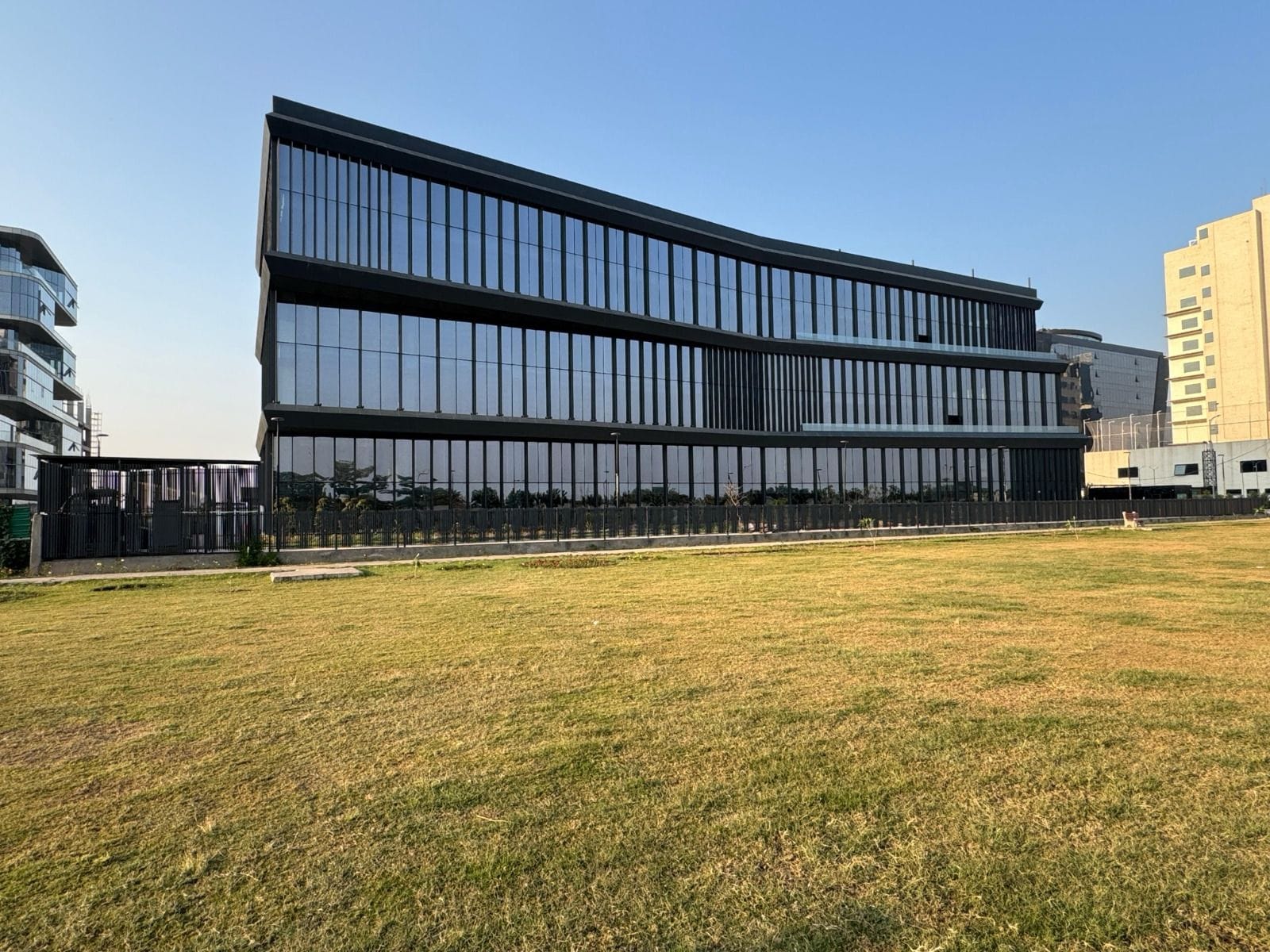Chandigarh: Some developers rise through visibility, others rise through impact. Mohit Bansal belongs firmly to the latter.
At a time when India’s real estate landscape is dominated by high decibel branding and extravagant showmanship, the CEO and founder of GMI Infra has built his reputation through something far rarer: consistent delivery, planning discipline and a deep sense of national purpose.
People in Chandigarh’s business circles describe him as private, thoughtful and analytical in his approach to growth. But behind the calm exterior is a founder who has spent the last decade turning a simple conviction into one of North India’s most ambitious infrastructure journeys.
And that journey is now placing him in conversations usually reserved for the biggest names in India’s real estate and industrial narrative.

*A Founder Who Walked Away from America to Build in India*
Before he became one of the region’s most talked-about infrastructure leaders, Mohit Bansal lived a very different life.
Armed with dual degrees in Computer Science and Applied Mathematics from the State University of New York, he had the classic launchpad for a lucrative career in the US.
But he chose not to stay.
He returned to India with a clarity that surprises even his closest associates today. He wanted to work where growth was needed, not where it was already achieved.
From Leh’s mountain roads to Punjab’s expanding urban zones, he observed how infrastructure shapes lives. He saw how a single road can open livelihoods for entire communities. He saw how industrial development can turn forgotten land into thriving job clusters.
Those observations eventually formed the heart of GMI Infra.
*GMI Infra: The Quiet Force Behind Emerging North India*
GMI Infra was formally established in 2018, though the groundwork began years earlier. The company’s philosophy was different from day one: build ecosystems instead of scattered real estate.
While many developers focused on luxury apartments and marketing-led growth, Mohit Bansal focused on the bones of urban progress—industrial parks, IT zones, logistics infrastructure, free trade corridors, sustainable housing and integrated communities.
Today, GMI Infra has become one of North India’s most serious growth players with projects that shape entire micro-economies.

*GMI Business Park*
An approximately ninety-acre integrated hub in Mohali that has already become a model for how IT, industrial units and startups can coexist with ease.
*GMI IT Tower*
A strategic development near ISB and Plaksha University designed to support tech companies that want reliable infrastructure rather than exaggerated promises.
*GMI Elite Homes*
A calm, carefully planned residential community for families seeking comfort, clarity and long-term trust.
*GMI Platinum Square, GMI Sky Greens, GMI Residences*
Upcoming commercial and residential landmarks that combine accessibility with sustainable planning. *GMI IT District, Logistics Park, Textile Park, Free Trade Zone*
Large-scale ecosystem projects across Mohali, Rajpura, Ludhiana, and Uttar Pradesh that align with India’s industrial ambitions and global trade goals.
These are not just developments on a map.
They are the building blocks of the India that is rising between now and 2047.

*A Businessman Who Moves Across Sectors with Ease*
Unlike many developers who remain confined to real estate, Mohit Bansal operates in a broader orbit of lifestyle, technology and policy-driven innovation.
*Whispering Homes*
A home decor brand he co-founded, now a favourite among hospitality chains and interior designers across India. Its curated aesthetic and global influence have positioned the brand as a go-to for premium residential and commercial spaces.
*MindSci AI*
His newest venture that focuses on artificial intelligence, civic planning and smart governance. It is quietly influencing how cities can use data to make better decisions, from traffic modelling to infrastructure forecasting.
These cross-sector ventures give him an unusual combination of design taste, technological understanding and policy depth—qualities rare in real estate leadership.
*A Profile That Is Slowly Rising Nationally*
Though he prefers to stay out of the limelight, invitations and recognition’ have followed him: TiECON, TEDx, BRICS CCI, CII, sustainability summits, university panels and national business forums.
Industry observers say his appeal lies in how grounded he is.
He speaks more about responsibility than ambition.
More about long-term planning than headlines.
More about jobs, sustainability and community impact than sales figures.
In a sector frequently criticized for opacity and overstatement, his authenticity stands out. *The Growing Circle Around Him*
People close to him describe a lifestyle defined by discipline and curiosity rather than extravagance. He is known to spend late nights reviewing land plans, infrastructure models and economic projections.
His network includes real estate veterans, young founders, policy thinkers, sustainability leaders and NRI investors who see him as someone shaping a serious, long-term vision for North India’s growth corridor.
Slowly, he is becoming the face of a new kind of developer:
One who represents stability, ethics and thoughtful expansion . A CSR Legacy Rooted in Community
Through the GMI Charitable Trust, Mohit Bansal has supported more than a thousand children with education and essentials. He sponsors cultural festivals, university sports events, youth-led initiatives and environmental programmes.
For him, development is incomplete if the community does not grow with it. *The Vision That Guides Him*
Mohit Bansal often says one line to his team:
“ We do not build projects. We build futures. ”
It reflects a simple idea.
Cities are not created by concrete. They are created by choices.
Developers who choose sustainability over shortcuts are the need of the hour. Planning over chaos.
People over trends.
Long-term reliability over short-term excitement.
GMI Infra represents those choices.
*Where He Goes From Here*
By 2030, the company plans to add multiple IT parks across North and East India while expanding its industrial and technological footprint through logistics hubs, free trade corridors and high-value residential districts.
Industry watchers believe GMI Infra will influence how Tier 2 and Tier 3 cities evolve as engines of India’s growth.
Mohit Bansal prefers to speak less about projections and more about preparation.
He often says India is entering a once-in-a-century window where infrastructure will decide its global position.
He wants GMI Infra to be one of the companies responsible for getting it right.
*A New Kind of Leadership for a New India*
Real estate has always had its heroes and its controversies.
But India’s next chapter will require a different kind of builder—calm, visionary, practical and deeply aware of the country’s needs.
Mohit Bansal stands at the intersection of these qualities.
His story may not be loud, but its impact is unmistakable.
And as India reshapes its urban and industrial identity, voices like his will define not just skylines but futures.
ThePrint BrandIt content is a paid-for, sponsored article. Journalists of ThePrint are not involved in reporting or writing it.

